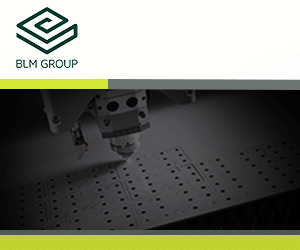MANAGING AN INFLECTION POINT
U.S. manufacturing is on the brink of a profound change in the way it conducts business. Mike Riley explains how small shops must recognize and prepare for this in order to survive and remain competitive.
Posted: August 11, 2010
An inflection point is a moment of profound change, a dramatic turning point toward a positive or negative outcome. It can happen during the development of a company that makes a major strategic change. It can occur within a single market or affect an entire industry.
The fall of the Berlin Wall was an inflection point in global politics. The commercialization of the Internet was an inflection point in technology. In each case, winners emerged and losers vanished. When the Wall was dismantled, the democratic free markets of the West rose to prominence and East European communism collapsed. As online commerce exploded through the expanding World Wide Web, many Internet pioneers who launched browsers or started other online services either disappeared or were swallowed by competitors. Does anyone remember Netscape?
In each case, the winners stayed keenly aware of an array of broad indicators that exposed subtle but rapid shifts in the way things were being done. They could sense how, taken together, all of these shifts were building toward some sort of profound change. And though they had no control over these shifts, the winners were able to prepare and manage through adjustments they made internally that were necessary to not only survive the transition that eventually happened, but enable them to come out productive and prosperous on the other side.
Fast forward to now. The manufacturing economy in the U.S. is at an inflection point. As we examined last month (“The Recovery: Half Empty or Half Full?” Editor’s Forum, July 2010), certain market sectors have started to rebound and even create demand problems for some suppliers. Other sectors remain flat, leaving manufacturers struggling for cash flow. But look at the broad indicators: Tax-supported stimulus programs have been rapidly passed to boost productivity, expand demand, increase hiring and reduce unemployment. Whether or not we want it, we are rapidly shifting toward higher healthcare costs, pollution abatement fees, business taxes and government interference in the smallest details of our lives.
Everyone you talk to has a strong sense that all of these shifts are building toward some sort of transition in the way business is conducted, a radical transformation that will result in either a dramatic improvement or an economy that tanks altogether. And while all fabricators and metalworkers will be affected, small shops will feel the hit most of all.
Whatever happens, winners will emerge and losers will vanish. The winners are already preparing for this upcoming transition by making internal adjustments that they feel are necessary. Based on the fine-tuning that I am seeing in some of these plants, I believe that small shops who are struggling right now must address at least three areas of their business operations to not only survive, but come out productive and prosperous on the other side:
(1) Do the Obvious: Get Lean and Leaner
(2) Automate, Automate, Automate
(3) Embrace Maintenance
LEAN AND LEANER
Is there anything else to be said about getting lean? Though it is not an immediate fix-all, lean is absolutely imperative for small shops preparing for the transition that is coming because, besides driving out internal wastes and lowering operating costs, lean can make a business more flexible by integrating its external supply chain to streamline production flow toward just-in-time deliveries. “Lean manufacturing must be incorporated into the culture by focusing on improving cash flow, continuous improvement, driving out operating waste and building a profitable sales pipeline,” notes John Kemp and Charles Mouranie, managing directors for consulting firm Houlihan Smith & Company (Chicago, IL), in their recent article “Manufacturing Can Be Competitive in the United States.”















